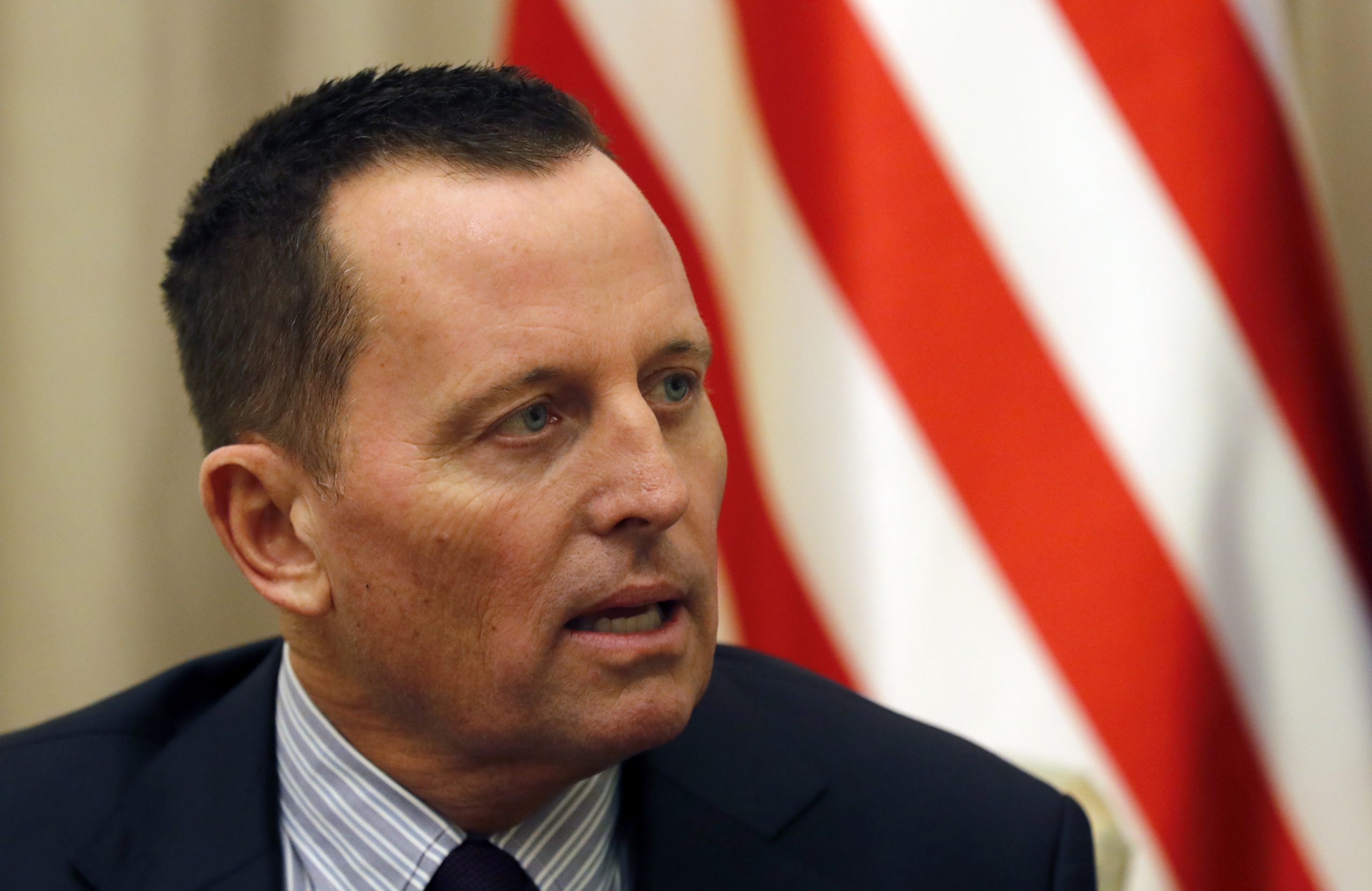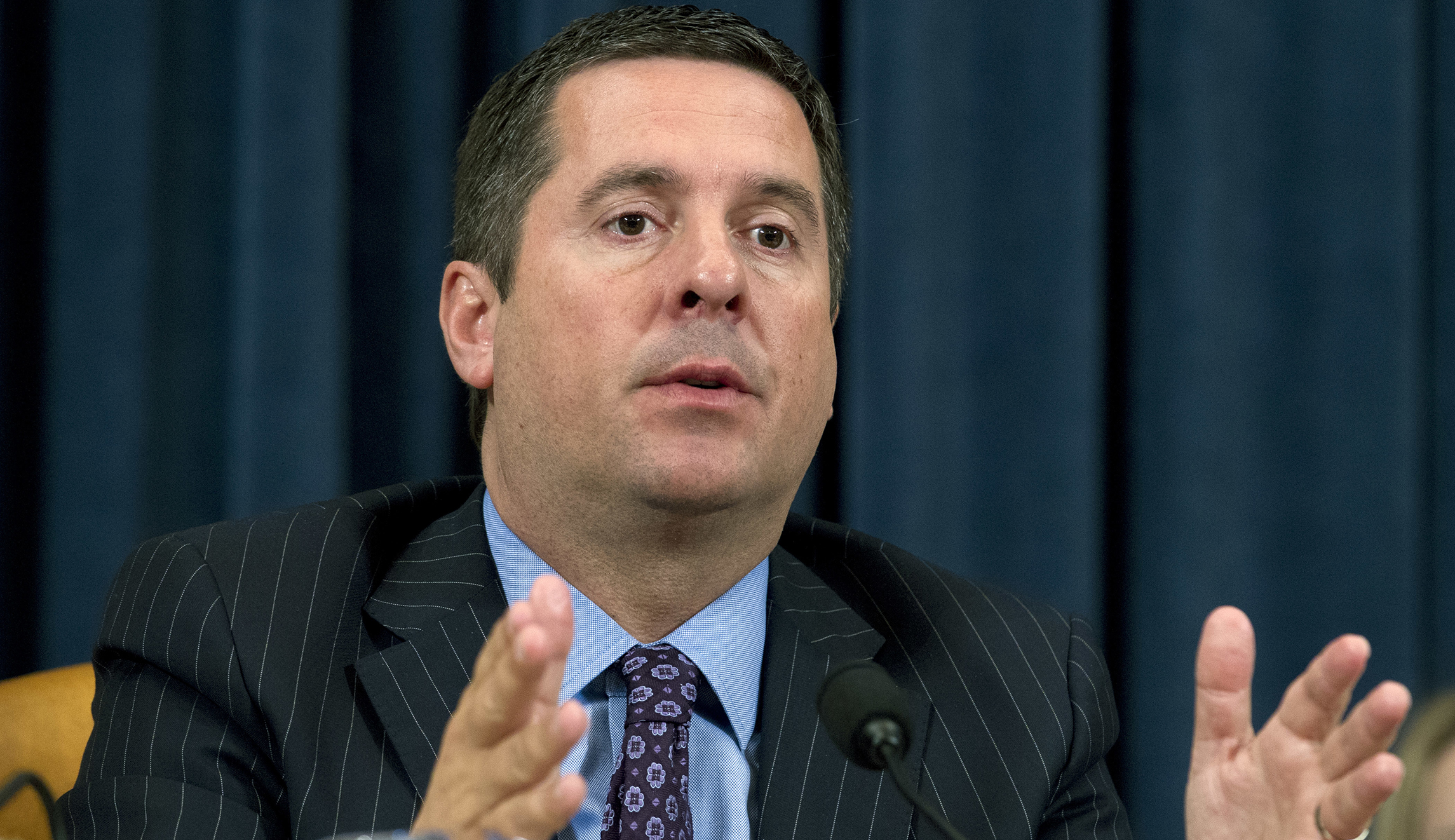The acting director of national intelligence ordered every spy agency to review its policies on the handling and dissemination of sensitive and private identifying information on U.S. persons immediately, saying he has become “increasingly concerned” about unmasking.
Richard Grenell, who took over as acting spy chief in late February as he concurrently serves as the ambassador to Germany, made his concerns clear in a directive obtained by the Washington Examiner to the heads of U.S. spy agencies dated Wednesday and titled “Protecting the Privacy and Civil Liberties of U.S. Persons.”
“As the acting director of national intelligence, I serve as the approving official for dissemination of unmasked congressional identity information … I have become increasingly concerned with intelligence reports that inconsistently apply the policies and procedures governing how U.S. person identities are masked,” Grenell wrote. “It is critical that we afford the same rigorous privacy and civil liberties protections to all U.S. persons regardless of whether they are a private citizen, member of Congress, or an official serving within our government’s executive branch.”
Republicans have alleged since 2017 that Obama-era officials improperly unmasked associates of then-candidate Donald Trump’s presidential campaign during the Russia investigation. Democrats have defended the intelligence-gathering process, arguing that the collection of identifying information is inevitable.
Grenell’s memo referenced the U.S. Intelligence Community’s Gates Procedures, which govern the dissemination of information that identifies members of Congress or their staff. A senior Trump administration official told the Washington Examiner that “each agency has its own rules governing identifications of U.S. persons in intelligence reports, leading to 17 different ways to portray the same person or company, and sometimes making it possible to identify a ‘masked’ individual.” The official said, “The standard needs to be that all Americans have the same privacy protections currently enjoyed only by some.”
An official familiar with the memo said it was designed to ensure that all 17 Intelligence Community agencies under the purview of the Office of the Director of National Intelligence have put in place and are following standards which comply with stringent privacy policies about disseminating information tied to U.S. persons and to modify their internal guidelines, if needed. The memo asked the agencies to report back with their findings within 30 days and to explain what “specific actions” they are taking to make sure their agency is following these privacy rules. The agencies covered under Grenell’s new two-page memo include the CIA, the FBI, the National Security Agency, the Defense Intelligence Agency, and the intelligence offices within the Departments of State and of Homeland Security.
“I am directing all IC [Intelligence Community] elements to review their implementation of the applicable standard for disseminating U.S. person identifying information and, as necessary, modify internal procedures to ensure the rules governing disseminations are consistently applied,” Grenell said.

In accordance with federal law and presidential executive orders, the ODNI’s national security authority guidelines state that spy agencies are required to “minimize and protect any non‐publicly available information concerning unconsenting U.S. persons” (such as citizens or permanent residents) that may be “incidentally collected” when “appropriately targeting non‐U.S. persons abroad for foreign intelligence information.” The sensitive identifying information can include a person’s name, job, or other things.
Unmasking occurs when U.S. intelligence agencies eavesdropping on foreigners sweep up communications with U.S. citizens in what is known as incidental collection. When the intelligence reporting is shared across the government, names of U.S. citizens are typically concealed or masked to protect their identities, but the names can be unmasked if U.S. officials make the request.
An official familiar with the new Intelligence Community memo stressed that although different spy agencies may have slightly different guidelines, the rules generally require that disseminated intelligence products should only identify a U.S. person if it is necessary for the recipient of the report to understand or act on the information, and the identifying information should only be shared with those who need it.
Then-House Intelligence Committee Chairman Devin Nunes said in 2017 he found evidence “that current and former government officials had easy access to U.S. person information and that it is possible that they used this information to achieve partisan political purposes, including the selective, anonymous leaking of such information.” The California Republican said, “The committee has learned that one official, whose position had no apparent intelligence-related function, made hundreds of unmasking requests during the final year of the Obama administration.”
“Obama-era officials sought the identities of Trump transition officials within intelligence reports,” Nunes said.

Rep. Adam Schiff, who has since become chairman of the intelligence panel, countered that “some incidental collection is unavoidable, and, as long as proper procedures are being followed, it is fully lawful” and that “it does not constitute either wiretapping or surveillance of Americans.”
The California Democrat added that “when it is necessary to unmask a name to understand the significance of the communication, there is a process for doing so, which is also lawful.”
The most prominent figure swept up in the unmasking controversy was retired Lt. Gen. Michael Flynn, whose name was repeatedly leaked to multiple media outlets in 2017, along with classified details of government-monitored calls he had with then-Russian Ambassador Sergey Kislyak. Flynn pleaded guilty to misleading FBI agents about those calls but has since sought to withdraw his guilty plea. New evidence has emerged related to the FBI’s targeting of Flynn, and U.S. Attorney John Durham is reportedly investigating the Flynn case broadly and specifically taking a look at the classified media leaks to the Washington Post in early 2017.
Both former Deputy Attorney General Sally Yates and former Director of National Intelligence James Clapper were pressed by GOP senators in 2017 about their role in alleged unmasking abuses. Former FBI Director James Comey told the House Intelligence Committee in 2017 that the NSA, the CIA, the FBI, and the Justice Department all had the ability to unmask individuals.
Republicans also accused former national security adviser Susan Rice of inappropriately unmasking Trump campaign members, but she denied any wrongdoing. “Absolutely not, for any political purposes, to spy, to expose, anything,” Rice said in 2017, adding, “I leaked nothing to nobody.”

Rice also said, “There were occasions when I would receive a report in which a U.S. person was referred to — name not provided, just U.S. person — and sometimes, in that context, in order to understand the importance of that report and assess its significance, it was necessary to find out or request information as to who that U.S. official was.”
There are reports that United Nations Ambassador Samantha Power unmasked hundreds of U.S. persons, but former House Oversight Committee Chairman Trey Gowdy has said she testified behind closed doors that most of the requests didn’t come from her. “So, that’s her testimony, and she was pretty emphatic in it,” Gowdy said. “The intelligence community has assigned this number of requests to her. Her perspective, her testimony, is they may be under my name, but I did not make those requests.”
Power said claims she improperly unmasked anyone are “absolutely false.”
Schiff is currently blocking the White House from viewing closed-door interviews with Power, Rice, and Yates, among others from the House Intelligence Committee’s Russia investigation, and he is stonewalling the release of dozens of other declassified interviews, including those of Clapper and former FBI Deputy Director Andrew McCabe.
Grenell’s memo stated that “moving forward, all IC Elements should, by default, characterize U.S. person identities in disseminated intelligence reporting in a sufficiently generic manner to mask their identity, consistent with existing law and policy.” He said that the guidelines among different spy agencies “might use slightly different words and phases” but “the rules generally provide that our disseminated intelligence products should only include U.S. person identifying information if it is necessary, or reasonably believed to become necessary, for the recipient to understand, assess or act on the information.”
Senate Judiciary Committee Chairman Lindsey Graham has said that his committee is investigating the unmasking saga, and he wants Yates, Clapper, Comey, and others to testify.
Trump’s pick as the permanent head the ODNI, Rep. John Ratcliffe of Texas, will face questioning during a confirmation hearing in front of the Senate Intelligence Committee on Tuesday.

